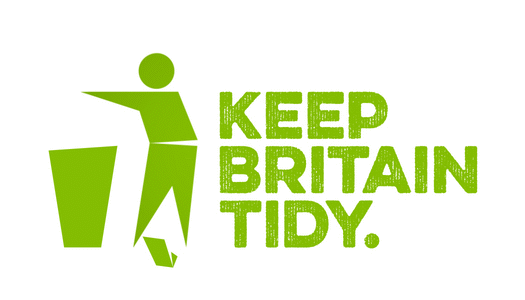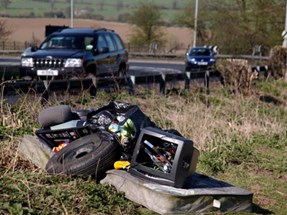Fly-tipping policy
For many local authorities, fly-tipping is now a number one issue. With over one million recorded incidents in 2016/17, and around £50 million of tax-payers’ money spent clearing it from public land, it’s easy to see why. Our ultimate aim is to eradicate fly-tipping: by 2020 we want to see the number of incidents halved.
Only by working together, educating the public and campaigning to government, can we make this a reality. Which is why we’ve launched “Reaching the tipping point”, our six-point action plan for tackling fly-tipping over the next five years.
"Fly-tipping is a significant blight on local environments; a source of pollution; a potential danger to public health and hazard to wildlife and a nuisance. It also undermines legitimate waste businesses where unscrupulous operators undercut those operating within the law.”
- Defra
Enquire now
Give householders the information they need

Feedback from local authorities indicates that all over the country there are individuals and businesses routinely collecting waste without the mandatory waste-carrier licence. We believe that only a national campaign with a unique brand will help raise public consciousness about everyone’s responsibility for taking care of their own waste.
CrimeNotToCare is an off-the-shelf campaign capable of delivery via a range of digital, print and face-to-face channels, based on our most up-to-date research. Participating local authorities will be supplied with a range of materials that can promote the duty of care via local media and include information about local services.
Make it easy for householders to do the right thing

Any strategy to reduce offending makes it easy for people to do the right thing and hard to do the wrong thing. We think the Government has a role to play here in supporting local authorities. Every year more than £1 billion in Landfill Tax is collected - we call on the Government to use a proportion of this income to support and improve the current recycling infrastructure, ensuring that closures and restrictions on use are avoided, and also avoid the additional costs of fly-tipping.
Develop effective and consistent enforcement strategies

Analysis of fly-tipping incidents and the actions undertaken by local authorities suggests a range of current approaches to enforcement. We will extend the application of existing good practice, develop new approaches and encourage a more consistent approach to enforcement across local authorities. This will increase the risk to fly-tippers, catch and prosecute more offenders and discourage others. We will develop a regularly updated online guide to good practice, extend the roll-out of our Enforcement Academy and explore the uptake and impact of current interventions.
Encourage stiffer sentencing in magistrates’ court

The Department for Environment, Food and Rural Affairs (Defra) stresses the range of impacts of fly-tipping, stating that it is “a significant blight on local environments; a source of pollution; a potential danger to public health and hazard to wildlife and a nuisance. It also undermines legitimate waste businesses where unscrupulous operators undercut those operating within the law”.
Because of the range of impacts of fly-tipping, we are calling on the Sentencing Council to undertake a review of the application of the Environmental Offences Definitive Guideline and collect data on sentencing in both the Crown Court and magistrates’ courts.
We are also calling on the Magistrates’ Association to ensure its members are fully aware of the requirements of the Environmental Offences Definitive Guideline and make full use of their sentencing powers to provide a real deterrent against fly-tipping.
We will review the uptake of fixed penalty notices for flytipping to determine whether it is effectively removing the need for local authorities to prosecute for minor fly-tipping offences.
Encourage the development of a more circular economy

In 2014/15 almost 150,000 items of furniture and white goods were fly-tipped. This is an illustration of the consequences of our current linear economy.
We will call on Government to look at encouraging manufacturers and retailers to bear some responsibility for the cost of collecting and recycling large used products, such as mattresses, sofas and white goods, and to fully implement the EU Circular Economy Package.
Better research and greater innovation

While we have evidence about where and when fly-tipping is happening, we have less evidence about why it is happening, including insights into the triggers and barriers to different fly-tipping behaviours.
Our Centre for Social Innovation seek partners to work with us, so we can develop and test local solutions to the growing problem of fly-tipping. We believe that the insights gained from targeted research, combined with our expertise in behavioural science, will lead to local campaigns and interventions that will significantly reduce fly-tipping. Where interventions prove to be successful, we will scale these nationally with a range of partners, including our local authority network.



